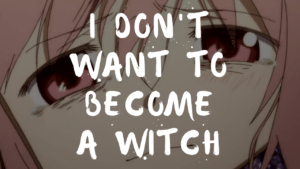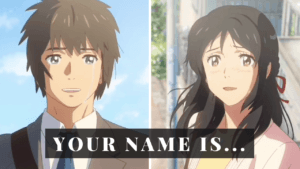Let’s learn Japanese with Shoya Ishida’s quote from A Silent Voice (Koe no Katachi).
CONTENTS
Video
Shoya Ishida’s Quote
Japanese: 俺と西宮、友達になれるかな?
Romaji: ore to nishimiya, tomodachi ni nareru kana?
English: I and Nishimiya, can we be friends?
Analysis
俺 means “I” in a manly way.
と is the particle used to name things one by one. It used to be attached to each word you name, so in this case it’s supposed to be 俺と西宮と but an omission of the one in the end has become more common in the modern language. It can be used multiple times such as 卵と牛乳とバターとパンを買った meaning “I bought eggs, milk, butter and bread”.
西宮 is the last name of the girl. Japanese people usually don’t use the pronoun “you” especially あなた as it sounds unfriendly, instead, they tend to call a person by their name. You usually call them by their surname when you have a certain distance like if you two just met or they’re just your colleagues, and you start calling them by their first name when you get closer.
友達 means “friends”.
なれる is the potential form of the verb なる meaning “to become”. With a noun, the particle に is usually used so 友達になれる means “can become friends“.
かな is used in questions when you don’t want to sound too assertive. So if it’s 友達になれる? meaning “can we be friends?” it’s just a simple and direct question for the speaker to get the answer. But by adding かな in the end, you can make it more subtle and humble as it sounds like “Do you think we can be friends?” or “I wonder if we can be friends?”
Examples
と (and)
とりあえず、生ビールと枝豆と餃子をください。
toriaezu, namabīru to edamame to gyōza o kudasai.
For now, I’ll have a tap beer, edamame and gyoza, please.
土曜日と日曜日は休みです。
do-yōbi to nichi-yōbi wa yasumi desu.
Saturday and Sunday are my days off.
アニメは、ナルトとワンピースと名探偵コナンとワンパンマンが好き。
anime wa, naruto to wanpīsu to meitantei konan to wanpanman ga suki.
As for anime, I like Naruto, One Piece, Case Closed and One Punch Man.
Noun + になる (to become something)
春になるのが待ち遠しい。
haru ni naru no ga machidōshii.
I can’t wait for spring to come.
3時になったら、おやつを食べよう!
san-ji ni nattara, oyatsu o tabeyō!
When it becomes three o’clock, let’s eat snacks!
8月になると、本格的に暑くなる。
hachi-gatsu ni naru to, honkakuteki ni atsukunaru.
When it turns August, it will get genuinely hot.
- Na-adjective + になる (e.g. きれい + になる meaning “to become beautiful”)
- I-adjective, you need to change the い to く (e.g. かわいい → かわいく + なる meaning “to become cute”).
かな (I wonder … ?)
こっちに来てもらえるかな?
kocchi ni kite moraeru kana?
Can you come here, I wonder?
明日のパーティ、このドレスでいいかな?
ashita no pātī, kono doresu de ii kana?
Do you think this dress is ok for tomorrow’s party?
タバコ吸ってもいいかな?
tabako sutte mo ii kana?
May I smoke?
Support Easy Peasy Japanesey
If you enjoy our content, please consider supporting Easy Peasy Japanesey. Your support will help keep us going. Thanks for all your support!


